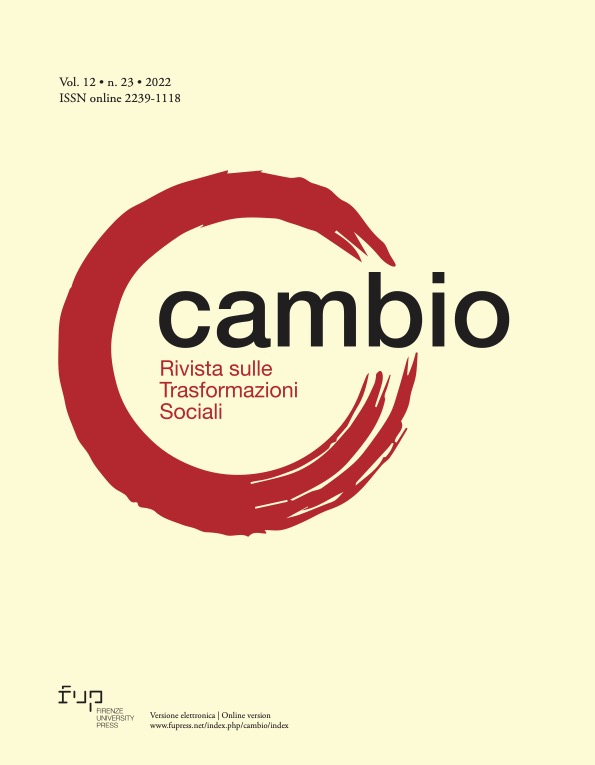The Role of Professional Competence in Welfare Services Development. A Contribution of Luhmann's System Theory
Published 2022-02-15
Keywords
- professionalism,
- Systems Theory,
- social services,
- professional competence,
- street-level bureaucracy
How to Cite
Abstract
Over the last few decades, professionalism has changed profoundly, and traditional approaches have now become insufficient to understand its developments as mono-dimensional. During the 20th century, many professions have been employed within organizational contexts, causing a bureaucratization and standardization of many professional activities. For some professions, such as that of social worker, the professionalization process has been traditionally considered strictly linked to organizational development. Organizations have become one of the main places in which professional practices take place, and professionalism can no longer be considered a «third logic», contrasting with the market and bureaucracy (Freidson 2001). The paper proposes a systemic point of view on the professions’ analysis within organizational contexts, according to which professional competence plays a pivotal role. The study focuses on social services, and particularly on local systems of measures against poverty, via the findings of a case-study conducted in Italy. Professional competences assume a key role, as their exercise is currently affecting the redefinition of contents and strategies of social intervention, in the delicate balance between consolidated settings (locally developed in a heterogeneous way) and an orientation towards administrative re-centralization at a national level, within a common community framework.


